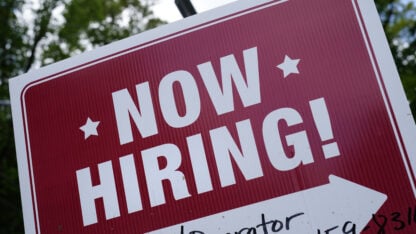Stephen Pruitt says he thought he was ready to be a teacher when he started his career in 1991.
“I had a chemistry major and also majored in education,” he reflects. “They handed me the keys, and they walked me down to my classroom, and I was like, “Oh look, I’m a teacher; I’m ready to go!”
Then, the kids showed up.
“It was like, ‘Oh my gosh, I’ve got these kids in front of me,’” he continues. “What am I going to do?”
Pruitt, who serves as president of the Southern Regional Education Board today, says some new teachers are finding themselves in the same position, according to research commissioned by the SREB.
The number of folks who feel unsatisfied with their early career preparation has doubled, from about 10% in 2017 to 20% in 2022.
This increase comes as schools nationwide struggle to keep teachers in the profession.
“This is not a new problem,” he says. “But in my opinion, it’s a larger scale problem.”
The study centers data from Kentucky and Tennessee, but Pruitt says teacher workforce challenges are ubiquitous–especially in the South.
One issue is fewer young folks want to be teachers.
“They just have different expectations of what work should look like,” Pruitt adds. “We’re at a point in our country, and in particular in the South, where we have got to states re-thinking how we’re approaching the profession.”
“Basically, education’s a big system in equilibrium,” he continues, putting on his hat as a chemist. “As long as you tweak different parts, that system will seek to establish itself.”
Pruitt says it’ll take a wholesale re-evaluation of teacher preparation, certification, development and compensation to help.
Southern states also need to invest in teacher survey data, according to the SREB.
“A lot of our states are like a bicycle wheel that has the spokes, but there’s no hub,” Pruitt says.
Having a hub will make identifying specific challenges to address head-on easier.
It will also make it easier to attract people the profession is struggling to attract, like Gen Z and people of color.









